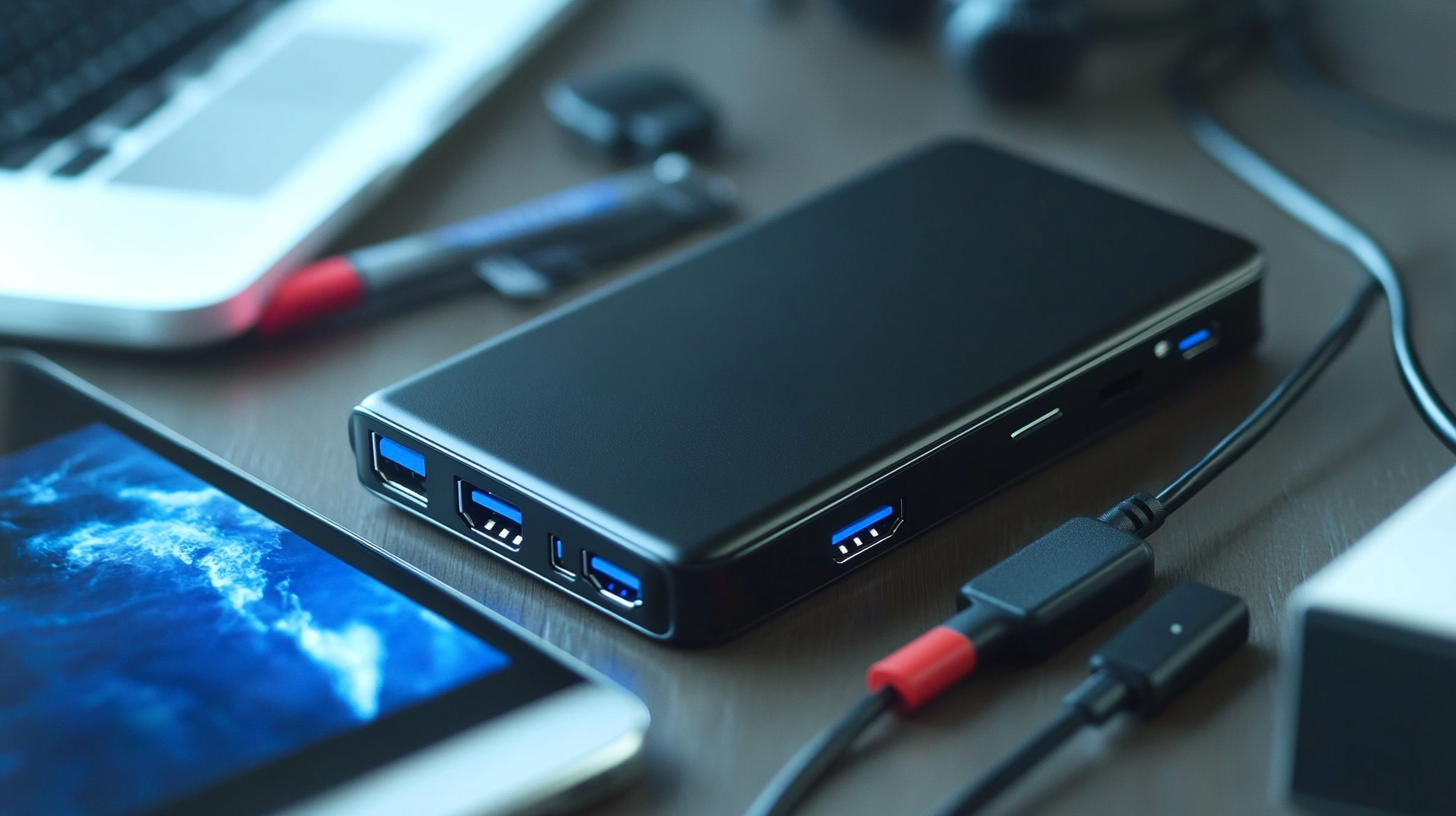Leave Your Message
In today's fast-paced digital landscape, the demand for Universal Mobile Chargers has surged dramatically, driven by the proliferation of mobile devices and the increasing need for convenient charging solutions. According to a report by Grand View Research, the global market for mobile chargers is projected to reach $30.82 billion by 2025, growing at a significant CAGR of 12.3%. This competitive market compels manufacturers and retailers alike to explore innovative sourcing strategies to meet consumer expectations for quality, efficiency, and sustainability. As consumers increasingly demand versatile and eco-friendly charging options, understanding the nuances of alternatives in Universal Mobile Chargers becomes paramount. This blog will delve into effective sourcing strategies that can help businesses navigate this competitive landscape, ensuring they remain at the forefront of consumer preferences while optimizing their supply chain operations.

In 2023, the demand for universal mobile chargers has surged, driven by the increasing number of devices and the trend towards eco-friendly solutions. According to a recent market report from Grand View Research, the global market for mobile chargers is expected to reach $47.1 billion by 2030, growing at a CAGR of 7.8%. This emphasizes the importance of identifying key features that define high-quality universal mobile chargers in this competitive landscape.
One of the paramount features consumers should consider is the charging speed. Fast charging technology, such as Power Delivery (PD) and Quick Charge (QC), has become standard for many devices. A report from MarketsandMarkets highlights that chargers with PD can reduce charging time by up to 70% compared to standard chargers. Additionally, safety features such as over-voltage protection and temperature control, which are critical for device longevity, should also be prioritized. With 76% of users expressing concerns about battery health due to subpar charging solutions, brands that prioritize safety and fast charging are likely to stand out in the market.
Furthermore, compatibility is crucial. As the IEEE estimates that there are over 1.5 billion smartphones in use globally, a universal charger must seamlessly serve various devices, from smartphones to tablets and even laptops. Chargers that support multiple connectors like USB-C, Lightning, and Micro-USB cater to a broader audience, reflecting consumer preferences for convenience and versatility in their charging solutions. In this competitive market, understanding these key features is essential for both consumers seeking reliable products and manufacturers aiming to meet market demands.
The universal mobile charger industry is poised for significant growth amid shifting consumer preferences and advances in technology. Understanding market trends is crucial for businesses looking to establish a competitive edge.
For instance, as electric vehicle charging stations expand, driven by the increasing demand for fast-charging networks, businesses must adapt their offerings accordingly. The electric vehicle charging market is projected to grow at a remarkable compound annual growth rate (CAGR) of 24.4% from 2025 to 2034, emphasizing the critical importance of aligning mobile charging solutions with evolving transportation technologies.
In addition to the electric vehicle market, the magnetic wireless power bank segment stands out with a projected CAGR of 11.2% from 2024 to 2030. This growth is driven by consumers' desire for convenience and efficiency in charging solutions. Companies must not only focus on robust design and compatibility across various devices but also address the increasing trend towards wireless technology.
As more consumers adopt devices enhancing mobile charging experiences, businesses equipped with insights into these trends will have the upper hand in capturing market share.
When sourcing a universal mobile charger in today’s competitive market, evaluating supplier credentials is paramount. In an era where two-thirds of a company’s environmental, social, and governance (ESG) footprint is tied to suppliers, procurement leaders must prioritize sourcing from manufacturers that uphold sustainable practices. A recent joint study indicates that consumers increasingly favor products that are environmentally and socially responsible, often leading to higher sales growth in these categories. Therefore, assessing a supplier’s commitment to sustainability should be a cornerstone of your evaluation process. Look for certifications and transparent reports that showcase their efforts in reducing carbon footprints and ensuring fair labor practices.
Additionally, understanding a supplier's track record can significantly impact your choice. According to industry reports, engaging with suppliers that demonstrate strong ESG credentials not only mitigates risks but can also enhance brand reputation. A reliable manufacturer will provide robust documentation and references that detail their sustainable practices and technological innovations. Evaluate their production capabilities and responsiveness to changing market demands, as these factors can influence your product's success in a crowded marketplace. By focusing on these elements, businesses can secure partnerships that align with consumer values and contribute positively to overall sustainability efforts.
In the fiercely competitive market for universal mobile chargers, finding the right balance between cost and quality is crucial for both consumers and suppliers. Pricing strategies significantly influence purchasing decisions, with many consumers seeking cost-effective options that do not compromise on performance. Top charger suppliers often adopt a tiered pricing model, offering a range of products that cater to varying budgets. This approach not only allows them to capture different segments of the market but also helps them position their high-end products as premium offerings with enhanced features and durability.
While lower-priced chargers may attract budget-conscious buyers, they can sometimes lead to subpar performance and reliability issues, tarnishing brand reputation. Consequently, many leading suppliers emphasize the importance of quality materials and innovative technology in their products, often justifying higher prices. Consumers increasingly value longevity and efficiency, prompting suppliers to focus on these attributes in their marketing strategies. By clearly communicating the benefits of investing in a higher-quality charger, companies can position themselves as leaders in the competitive landscape, creating a loyal customer base willing to pay a premium for reliability and excellence.

When sourcing the best universal mobile charger in a competitive market, a comprehensive checklist for supplier assessment and selection becomes paramount. This checklist should prioritize environmental sustainability in line with the triple bottom line (TBL) principle, evaluating suppliers based on criteria such as their sustainable sourcing practices, human rights compliance, and overall ecological impact. These elements are essential, not just for ethical considerations, but also for improving brand reputation and meeting consumer demand for responsible products.

Furthermore, as businesses navigate the supplier landscape, incorporating a due diligence framework is crucial. This involves assessing potential suppliers on various sub-criteria, such as the materials they use, their production processes, and their social responsibility initiatives. By systematically evaluating these factors, companies can ensure they partner with suppliers who align with their values and commitment to sustainability, ensuring a more reliable and conscientious supply chain for universal mobile chargers.
